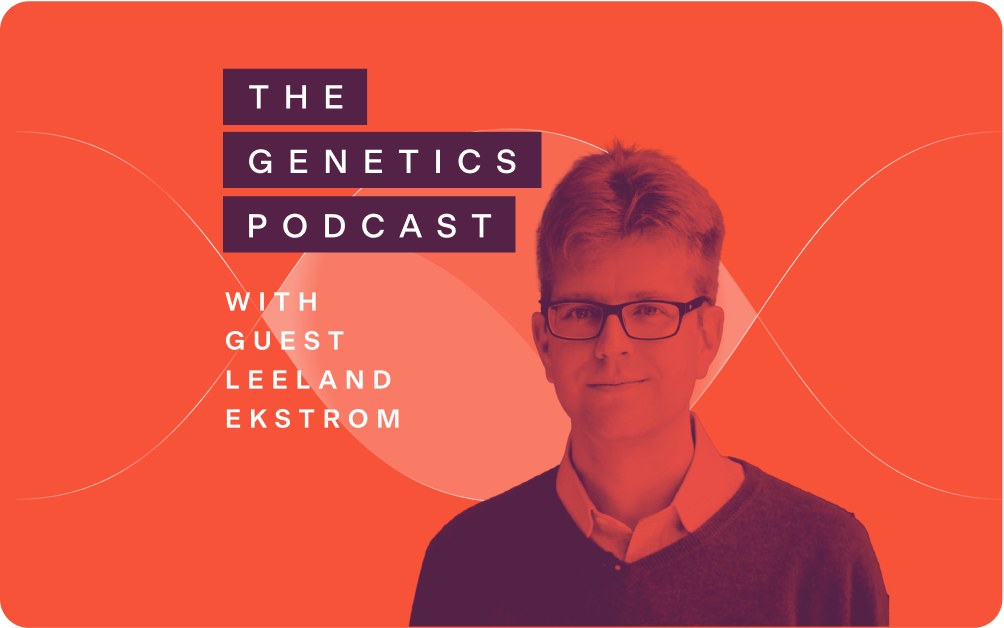Podcast recap: Leeland Ekstrom on large-scale genomics, real-world data, and the future of precision medicine

In the latest episode of The Genetics Podcast, Patrick Short chatted with Leeland Ekstrom, CEO and co-founder of Nashville Biosciences (NashBio), a for-profit subsidiary of Vanderbilt University Medical Center. Leeland shares the story of how he went from consultant to CEO, building a company that now operates one of the most powerful integrated clinical-genomic data resources in the world. From sequencing 250,000 whole genomes to enabling global research partnerships, NashBio is helping shape the next era of drug discovery.
A consultant turned founder
Leeland first came to Vanderbilt to write a business plan on how to commercialize the BioVU biobank. At the time, BioVU was attracting attention from pharma companies for its unique combination of de-identified EHR data and biospecimens. But turning that interest into a scalable business wasn’t simple. Over 18 months, Leeland helped develop the commercial strategy and eventually stepped in as NashBio’s founding CEO.
Early work focused on drug repurposing using Vanderbilt-developed methods like Phenome-Wide Association Studies (PheWAS). As demand grew, the company expanded its capabilities, focusing on cohort creation and building data pipelines that could serve R&D teams across the industry.
Sequencing 250,000 genomes
In 2023, NashBio completed one of the largest whole-genome sequencing efforts in the US, sequencing 250,000 samples from the BioVU biobank. This was made possible through a strategic partnership with Illumina and a group of global pharma companies including Amgen, Merck, AstraZeneca, Bayer, AbbVie, GSK, and Novo Nordisk.
The initiative prioritized genomic diversity from the start, with the first 35,000 samples selected to represent individuals with African ancestry. The resulting dataset is already being used to support target discovery, disease progression studies, and clinical trial planning.
Building usable infrastructure
NashBio is building a full platform designed to make life easier for researchers. They’ve taken a modular approach: advanced users can dive straight into the data through a cloud-based trusted research environment (TRE), while others can tap into pre-built tools and insights tailored to specific therapeutic areas.
The team also supports clients with services like phenotype definition, clinical context interpretation, and data harmonization, making it easier to go from raw data to real-world science.
What comes next: Multi-omics, global collaboration, and data at scale
Looking ahead, NashBio is thinking bigger than just genomics. They’re exploring ways to add layers like proteomics, transcriptomics, metabolomics, and even repeat sampling over time to track how diseases evolve. They’re also starting to team up with global partners to connect and standardize data across different health systems, both in the U.S. and around the world.
Instead of building 50 separate versions of NashBio, the team is aiming for a more connected approach. They’re focused on creating shared infrastructure, like common data models and consistent vocabularies, that can bring different systems together and make large-scale, collaborative research much easier.
Dealing with NIH disruptions and the future of US science
Leeland expressed concern about ongoing uncertainty around NIH funding. While NashBio operates commercially, many foundational discoveries in genomics and drug development come from federally-funded research.
He pointed out that cutting back on basic science now could have serious long-term consequences including fewer medical breakthroughs and a slower pace of innovation down the road. While there’s definitely room to make the system more efficient, any changes need to be thoughtful and made in partnership with the scientific community.
Listen to the full episode now:
